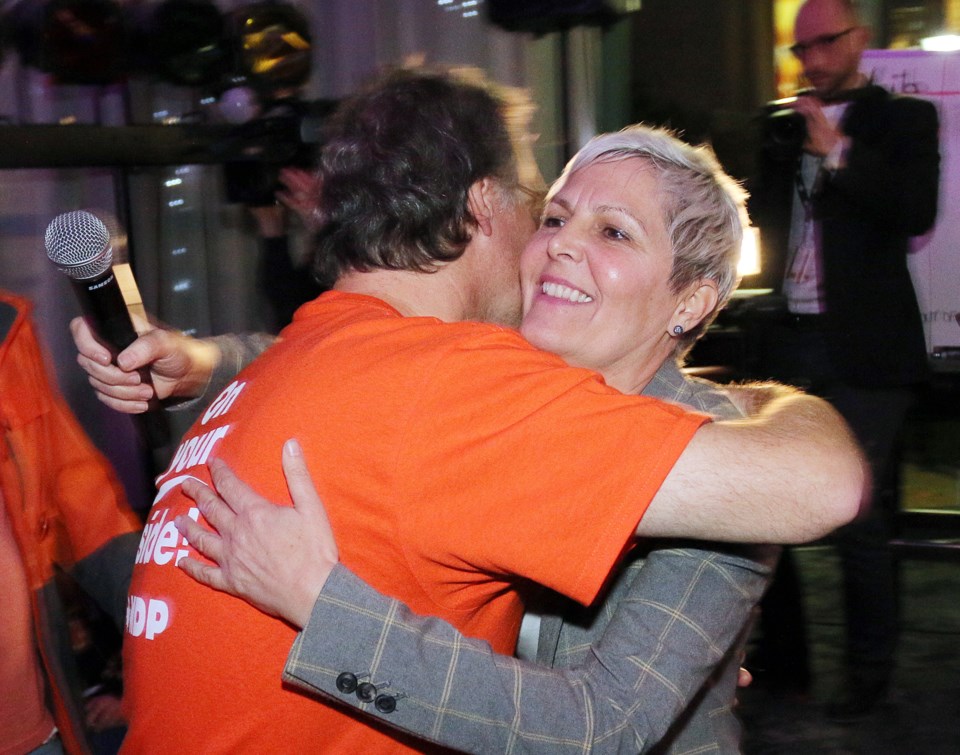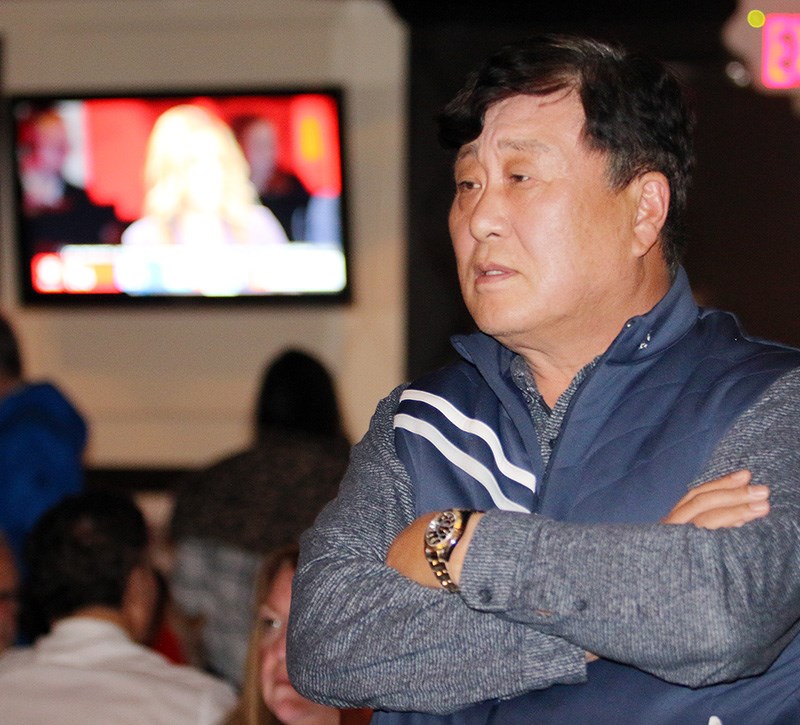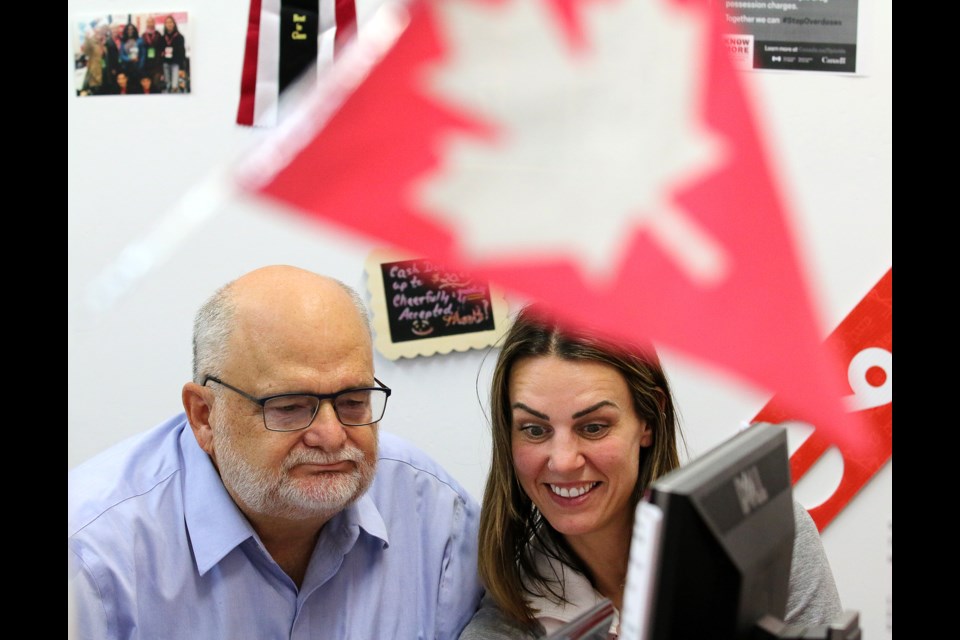The Tri-Cities lived up to its battleground expectations Monday in an election that closely mirrored the fractured electoral landscape across the country.
In Coquitlam-Port Coquitlam, Liberal incumbent Ron McKinnon eked out a victory over his Conservative rival Nicholas Insley by a margin of just 339 votes in a win emblematic of the party’s national fortunes.
Next door in Port Moody-Coquitlam, a tight three-way race kept Liberal, Conservative and NDP voters glued to the screen late into the night. In the end, Tory parachute candidate Nelly Shin upset both NDP hopeful Bonita Zarrillo and Liberal contender Sara Badiei, supplanting a decade of NDP representation by a mere 333 votes.
Across the country, the NDP failed to translate the momentum its campaign had gathered in recent weeks to wins at the ballot box, and after promise early in the campaign, the Greens gained only one seat nationally.
In many ways, every party failed to make a major breakthrough.
When SFU political scientist Stewart Prest looks at the suburban makeup of Tri-Cities’ two ridings — bellwethers that lived up to their expectations — he’s not surprised.
“There's a totally different conversation going on around issues like climate and energy, politics, and you're sort of sitting at the dividing line where both conversations are happening in the same place at the same time,” he said.
“It’s just completely different world-views… And we’re seeing evidence that both are present where the town meets the city.”
While McKinnon’s win represents a Liberal party barely hanging on after Trudeau’s SNC Lavalin and “blackface” scandals, Prest looks at Shin’s victory as in part due to an expanding urban core, where people looking to buy a home in the suburbs tend to have economic aspirations that line up with a conservative message.
As it became clear Nelly Shin would take the riding late Tuesday evening, NDP runner-up Zarrillo told The Tri-City News the tight race was a clear sign that “this is a riding in transition.”

Still, looking at the three-way split in Port Moody-Coquitlam, progressive and centre-left voters more than doubled Conservative votes at the ballot box, suggesting both an element of chance and a left-leaning strategic voter’s worst-case scenario. Together, Zarrillo, Liberal Badiei and Green candidate Bryce Watts earned more than 35,000 votes compared to Shin’s 16,588.
“If one of those two candidates really caught fire, we would be having a totally different conversation,” said Prest.
The schism between left and right has also played out on the campaign trail: online, where right-of-centre Facebook groups are very active [Link to Right Now story]; and in public, where Conservative candidates like Shin avoided several all-candidates debates and turned down interview requests (Shin did, on a few occasions, make herself available to The Tri-City News).
“Conservatives have, fairly or unfairly, a perception that they face closer scrutiny from mainstream media outlets… So they avoid debates, they avoid interviews and they just have these one-on-one conversations,” said Prest.

Compared to the 2015 federal election, voter turnout was down around 5% across the Tri-Cities; while the research is mixed, there is evidence that some voters are likely to stay home the more negative the campaign gets, especially when it comes to more casual voters.
“They just won't take part when you have that kind of negative campaigning, whether it's targeting the person they were inclined to vote for, or just muddying the waters and creating a sort of ‘pox on all your houses’ [narrative],” Prest said.
Now, post-election, the old political fault lines have only seemed to gather steam. The rise of the Bloc Quebecois in Quebec has been accompanied by discontent across the Prairies: The day after the election, Saskatchewan Premier Scott Moe openly challenged the Liberal government to readjust equalization payments and cancel the carbon tax. And online, a nascent “Wexit” campaign has sprung up on Facebook under the motto “The West Wants Out,” its VoteWexit page going from 2,000 members on Monday to more than 220,000 and counting by Wednesday morning.
While western separation is both a longshot and hardly a universal sentiment, it is a sign that political compromise could be challenging following a toxic election campaign.
“I think the Liberals have a certain amount of flexibility here, but they are going to have to compromise a bit. And that's going to imply admitting that Canadians were not super happy with this party,” Prest said. “There's going to have to be some acknowledgement of that or it's going to be a difficult and fractious parliament.”
On Wednesday, Trudeau said the Liberals would not form a coalition government, paving the way for his minority government to work with the other parties on an issue-to-issue basis.



